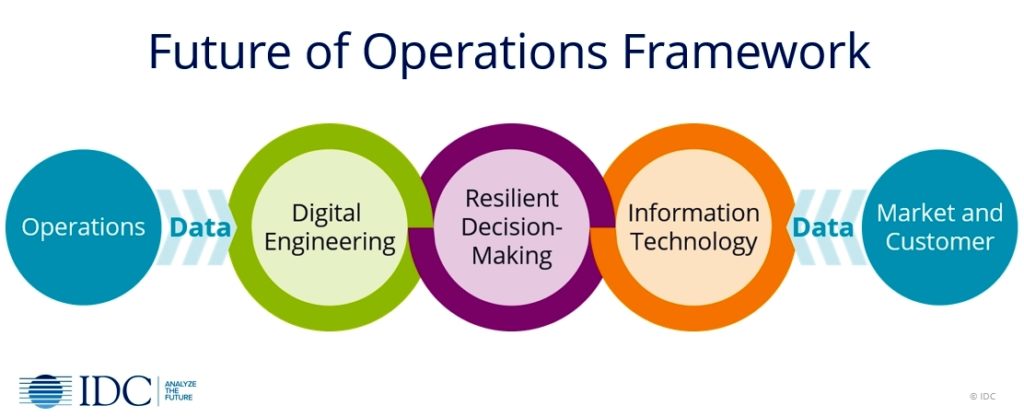Traditionally, operational data has been siloed by both technology and organization. Systems have typically been in place to pull critical financial and compliance information from operations by the IT organization.
And those same systems push down orders and demands as gathered by the IT systems. It is then up to the operation to have processes and systems in place to turn that flow into an executed business function.
By 2025, intelligent enterprises will see 100% increase in productivity, resulting in 1/2 the response time of peers due to an ability to anticipate market and operational changes and 25% increase in success rates of new product introductions.
In this new normal, throughput and efficiency will not be as critical as having a market-driven mindset. To succeed in a future where custom products and experiences are the norm, organisations must to build a resilient organization through instrumentation, infrastructure, integration, and insight.
IDC defines resilient decision making as having the ability to use all available data and information to rapidly and effectively make decisions that keep your operations aligned with customer expectations and demands.

The drive to the Future of Operations (FoO) rests on having the ability to move beyond the push/pull nature of information flow.
"Digital engineering is the piece that companies have been missing to become more resilient and to tightly align operations with their customers' needs. The convergence of IT and OT is the driving force behind digital engineering and the resiliency at its core," said Kevin Prouty, group vice president of Manufacturing and Energy Insights.
To succeed in the Future of Operations and adopt the market-driven mindset, IDC is guiding organizations to stay true to these five key tenants:
- Evolve beyond continuous improvement, lean, and six sigma to resiliency and market focus
- Embrace complexity in products, services, and markets while minimizing complications
- Resilience in adapting to changing markets and demands without losing the core operational purpose
- Use digital capabilities to build a resilient organization and operation
- Develop a converged IT and Operations Technology (OT) function in Digital Engineering
Organizations can leverage the FoO framework to structure and scope their future of operations initiatives. Key decision makers will be able to define the technologies and related services essential to the new market-driven operational models. Technology suppliers can use the framework to ensure their solutions are meeting the demands of the enterprises that are and will be undergoing operations transformation efforts.




